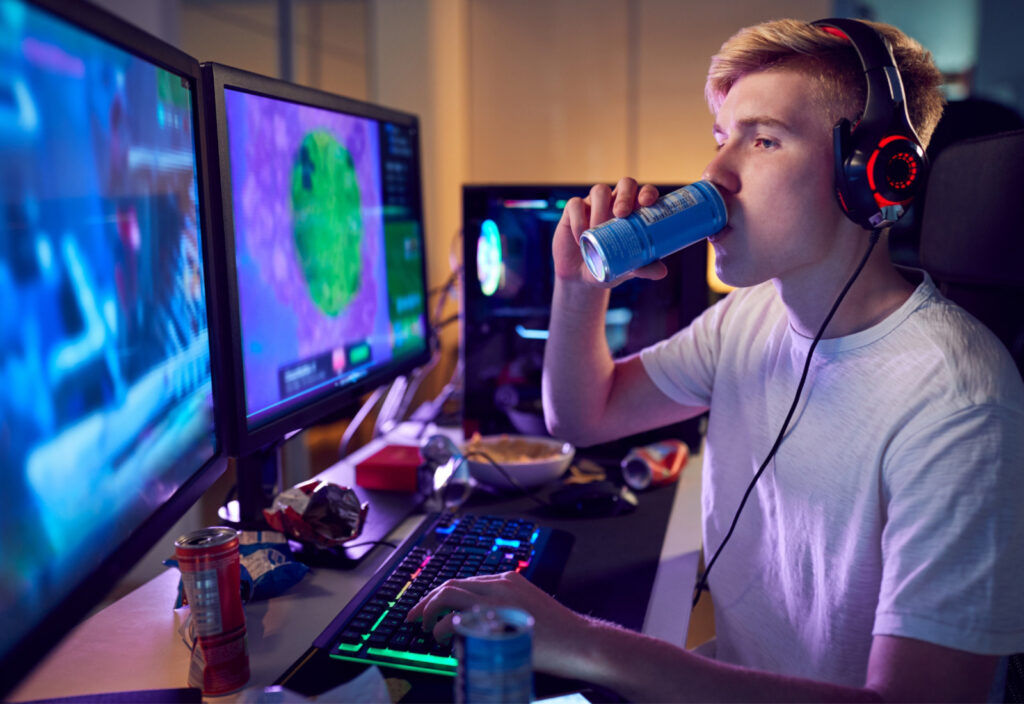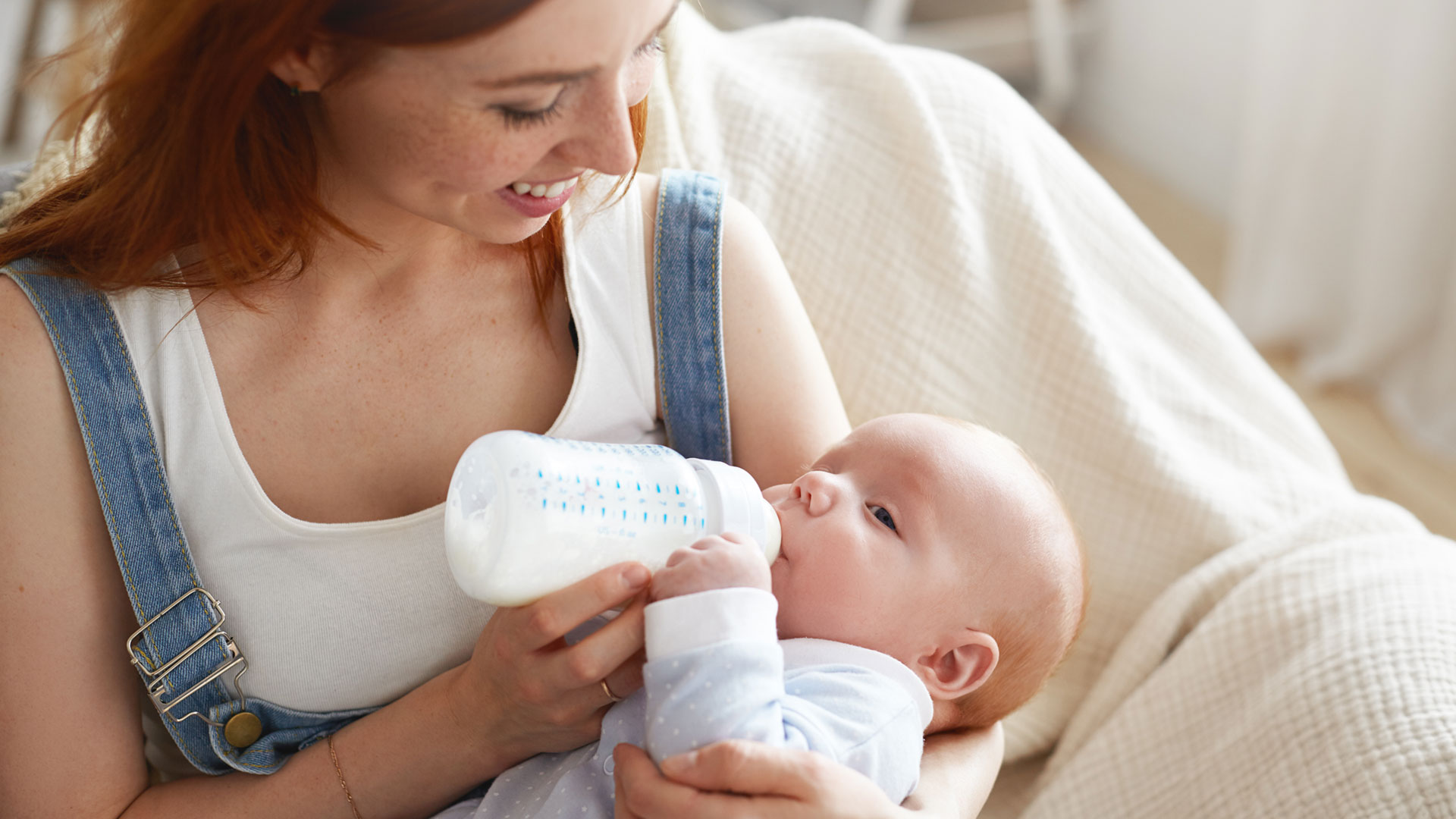by Dr. Ryan Hassan, MD, MPH, FAAP
As a pediatrician, I have seen an increasing number of adolescents regularly turn to energy drinks to help them overcome fatigue from long days of schoolwork and extracurriculars. This is concerning for several reasons.
To understand why, let’s look at what energy drinks do and why kids want to use them.
What Do Energy Drinks Do?
Energy drinks get their “energy” primarily from large amounts of caffeine and sugar, both of which can be harmful in larger-than-recommended doses for their age.
Caffeine Can Cause Heightened Anxiety and Sleep Issues
Caffeine is a stimulant that increases alertness and focus, but in large amounts—like those found in energy drinks—it can cause jitters, anxiety, a racing heart, irritability, sleep problems, and dependence (addiction).
The American Academy of Pediatrics (AAP) states that children should not consume caffeine before age 12. Children 13 to 18 should limit caffeine to 100 mg per day – the equivalent of a single cup of coffee or two caffeinated soft drinks.
Yet, most energy drinks contain as much caffeine as three cups of coffee in a single can/bottle.
Excess Sugar Intake Causes a “Crash” and Elevates Health Risks
Why Do Kids Use Energy Drinks?
Kids who need a boost in focus and performance often suffer from sleep deprivation, poor nutrition, and overwhelming workloads. They may also succumb to the energy drink “trend factor,” as teens and young adults are the target market for energy drink manufacturers.
Feeling tired during the day usually means your body needs a nap, not an energy drink. Teens need 8-10 hours of sleep per night, but most get less.
Lack of sleep can cause:
- Tiredness
- Lack of focus
- Anxiety
- Irritability
Sleep habits are one of the first things I ask about when children tell me they’re having unexplained pain, trouble with their mood, or diminished school performance. Encouraging better sleep habits—like turning off screens before bed and keeping the bedroom dark—can help.
Don’t Replace Healthy Nutrients With Empty Calories
Many teens I speak with eat poorly, often skipping breakfast and consuming few fruits and vegetables. Energy drinks can make this problem worse when kids use them as meal replacements because they create a feeling of “fake” fullness – caffeine + sugar – but without the nutrients that support the body and brain.
A balanced diet with regular meals, including fruits, vegetables, and whole grains, can help maintain steady energy levels and promote long-term health.
Model a Healthy Work-life Balance at Home
Lastly, teens often have to balance school, homework, extracurriculars, and jobs, leaving little time to relax. Parents can ease this burden by helping their children set realistic goals for themselves – and modeling that at home.
Childhood is one of the briefest and most magical parts of our lives. I recommend slowing down and enjoying it with your children rather than treating it simply as training for adulthood.
The Bottom Line on Kids & Energy Drinks
Energy drinks might provide a temporary boost, but they come with risks like anxiety, poor academic performance, and chronic sleep deprivation. When we support healthy routines for our children, like balanced diets, consistent sleep, and time for relaxation, we can reduce, and hopefully eliminate, the need for these stimulants.
Are you concerned about your child’s use of energy drinks? Let us know the next time you’re in for a physical or routine exam. The physicians, nurses, and staff at Pediatric Associates of the Northwest are here to provide an objective viewpoint. We are happy to talk to your tween or teen about the risks associated with energy drinks and how to replace those with positive, nutritious, and health-sustaining alternatives.
References:
1. Added Sugars and Cardiovascular Disease Risk in Children: A Scientific Statement From the American Heart Association | Circulation (ahajournals.org)
2. Study: 73% of high school students not getting enough sleep | AAP News | American Academy of Pediatrics
3. Youth Risk Behavior Surveillance — United States, 2019 (cdc.gov)





